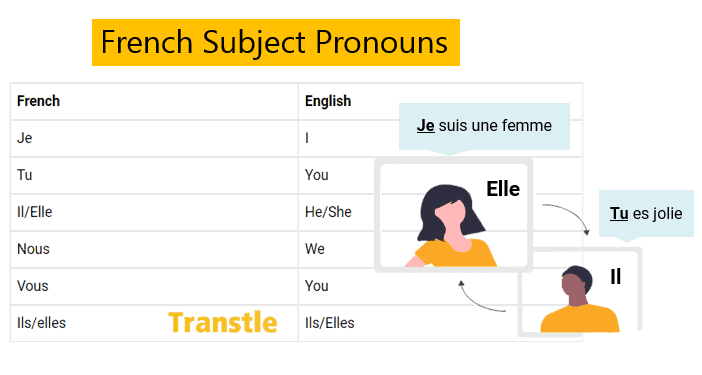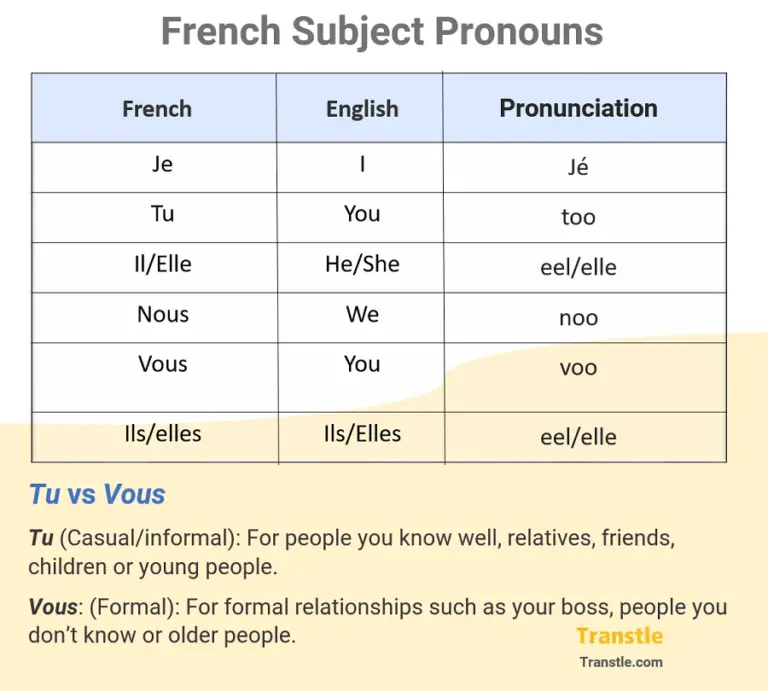French Subject Pronouns: Guide, Chart, Examples, Exercises

French subject pronouns are words used to refer to the subjects of a sentence. The subject personal pronouns in French are:
Je: I
Tu: You
Il: He
Elle: She
Nous: We
Vous: You
Ils: They
Elles: They
These are specifically called subject personal pronouns (Pronoms personnels sujets) and are fundamental words in any language, as they allow us to construct simple and complex sentences and communicate clearly and effectively.
Chart of french subject pronouns
The list below contains French personal pronouns and their pronunciation:

Examples and sentences
|
How to use the subject pronouns in French
- They usually go at the beginning of the sentence, before the verb.
Example
Tu danses avec ton ami. – You dance with me. Vous avez une fête. – You have a party. |
- Its use is almost always obligatory.
Example
She eats bread. – Elle mange du pain. You can’t say mange du pain, you need to use the pronoun, in this case, it’s elle. |
- Je is contracted in front of a vowel. The pronoun “Je” changes to “J‘” when used before a vowel, this is done to facilitate pronunciation and fluency in communication.
Example
“J’aime les biscuits” instead of “Je aime les biscuits”. |
Tu and vous
Essentially, “tu” and “vous” both mean “you,” but they differ in formality:
Tu:
- Informal “you.”
- Used with friends, family, children, and people you know well.
Tu vas à la plage domain? – You’re going to the beach tomorrow? |
Vous:
- Formal “you.”
- Used with strangers, elders, in professional settings, and when showing respect.
Salut madame, comment allez vous? – Hello ma’am, how are you? |
Il and elle
Let’s expand on “il” and “elle” with more detail.
- With people “il” is used to refer to masculine nouns, while “elle” is used to refer to feminine nouns.
|
- With animals
|
- Impersonal “Il”:
“Il” is also used in impersonal expressions, where it doesn’t refer to a specific person or thing.
|
On
The French pronoun “on” is a flexible word that acts like “one,” “we,” or “people,” shifting its meaning based on the situation.
While it’s grammatically treated as a singular “he/she/it,” it often stands in for “we” in casual conversation, making it less formal than the standard “nous.” So, “on” allows for a range of interpretations.
- On used as we
|
- On used as they (people in general) or someone
|
- On used as you
It’s used with people in general
|
Exercises
Now practice what you learned with the following exercises.

Time's up
Read next



